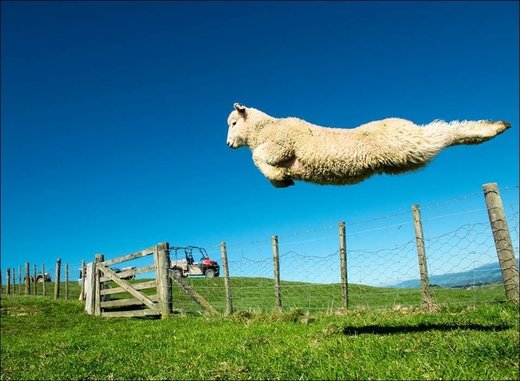Following the summit in Warsaw, the Foreign Ministry of Russia announced: "The Alliance focuses its efforts on a non-existent threat from the east. By demonizing Russia, NATO justified its actions and the destructive role it plays in the world, to maintain tension in various regions." This is written on the website of the Russian Foreign Ministry. The message says that "NATO is not paying attention to the long-term negative consequences of its policy in Eastern Europe." The Russian Ministry also mentioned that Finland wants to strengthen its air defenses over the Baltic Sea. While the Finnish State's military is neutral, its accession to NATO has been discussed several times."The Alliance wants to build the largest collective defense of NATO against Russian aggression since the Cold War," said NATO Secretary General Jens Stoltenberg and he also stated that the world is in a new Cold War. For his part, German Foreign Minister Frank-Walter Steinmeier, worrying about the powerful militarization in Eastern Europe and the increasingly deepening difficulties for dialogue, expressed his expectations that the difficult negotiations with Russia will stabilize. At the same time, Steinmeier urged Moscow to accept the offer for dialogue with NATO.
At the NATO summit in the Polish capital, the leaders came to the conclusion that Russia's "aggressive actions" are a threat to peace and freedom in Europe, but that at the same time NATO as an Alliance is open to dialogue with the Russian side. A curious paradox, simultaneously declaring someone enemy number one and taking every effort to fight with him, but at the same time calling for dialogue and close relations.
To achieve a certain dialogue, one should have a proper approach. If we want dialogue, we must have a proper strategy to achieve it. We will rarely have a good dialogue with someone who we insult, disparage, call into doubt and condemn. According to German philosopher Karl Popper "the value of a dialogue depends primarily on the variety of competing views." If within a dialogue it is impossible to compromise and hear the other side, which is constantly attacked military and media wise, then the diversity of opinions is actually aggressively and deliberately dulled.
After "calls" from Warsaw for a dialogue with Moscow, coupled with dramatic explanations about Russian aggression, Russia stated that it is ready for dialogue and that does not threaten anyone.
After Obama described the meeting in Warsaw as the most important moment for the Alliance after the end of the Cold War, NATO and the EU came up with their first joint declaration on cooperation in the field of security, pledging to work together, especially in terms of the hybrid war, and joint naval operations to prevent illegal migration .
US troops will command one of four multinational combat NATO battalions in Eastern Europe designed to "reassure" the region due to the threat of a "Russian invasion". Britain will send 500 soldiers for a battalion that will be based in Estonia, and Canada and Germany will lead two battalions in Lithuania and Latvia. Obama stated that in Europe next year, will be deployed armored brigades based in Poland.
Meanwhile, Polish Foreign Minister Witold Vashchikovski said: "We must reject any kind of wishful thinking that we can have a pragmatic cooperation with Russia."
French President Francois Hollande stated that Russia should not be seen as a threat but as a partner, and Dmitry Peskov, a spokesman for Vladimir Putin, insisted that Russia has always been ready for dialogue and never limited it, especially when it comes to a "real threat" which is, according to him, terrorism. Peskov said that "Russia does not seek (the enemy) but that is sees how the enemy is created and advancing. When NATO troops are marching around our border and flying planes there, we are not those who are invading the borders of NATO."
The Former President of the Soviet Union, the person who disbanded the Warsaw Pact, and one of the fathers of united Germany, Mikhail Gorbachev, also sharply criticized the alliance after the meeting of the NATO summit in Warsaw. Gorbachev said: "The current actions and movements of the military alliance are in fact a declaration of war on Russia." He added: "Everybody is talking only about deference, but is only taking offensive operations. From a Cold War, NATO is preparing for a hot war." Gorbachev's words should be politically tricky especially for German Chancellor Angela Merkel, as Gorbachev has repeatedly spoken critically about the progress of NATO and defended the autonomous decisions of the Kremlin and Vladimir Putin. Gorbachev is a politician who has contributed significantly to end the Cold War and allow the unification of Germany.
At least countries like Germany and France seem to be trying not to let the meeting in Warsaw, create the impression that the summit is "anti Russia." Hollande said that for France, Russia is not an enemy. Steinmeier was also critical of the heavy militarization and deepening of the crisis between the European Union and Russia.
NATO Secretary General Jens Stoltenberg, at a joint news conference Thursday with Polish President Andrzej Duda, stated that after the NATO-Russia Council, to take place in Brussels on the 13th of July at an ambassadorial level, we could talk about preparing a meeting at the ministerial level. The NATO-Russia Council has an important role as a forum for dialogue and exchange of information in order to reduce tension and increase the opportunities for predictability. Stoltenberg also stated: "Our practical cooperation with Russia remains suspended, but the channels for political dialogue are still open."





Comment: Further reading: Pepe Escobar: NATO paranoia versus Eurasia integration